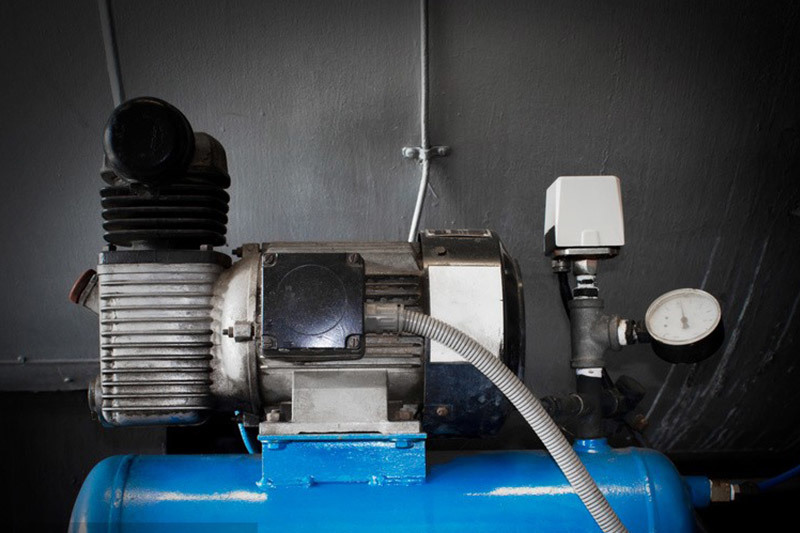03 Jul,2025
Exploring the Role of Air Compressors in Pharmaceutical Manufacturing: Enhancing Efficiency and Quality Control
Exploring the Role of Air Compressors in Pharmaceutical Manufacturing Table of Contents 1. Introduction to Air Compressors in Pharmaceutical Manufacturing 2. The Importance of Air Compressors in the Pharmaceutical Industry 3. Types of Air Compressors Used in Pharmaceutical Manufacturing 3.1 Rotary Screw Compressors 3.2 Piston Compressors 3.3 Scroll C
Exploring the Role of Air Compressors in Pharmaceutical Manufacturing
Table of Contents
- 1. Introduction to Air Compressors in Pharmaceutical Manufacturing
- 2. The Importance of Air Compressors in the Pharmaceutical Industry
- 3. Types of Air Compressors Used in Pharmaceutical Manufacturing
- 4. Applications of Air Compressors in Pharmaceutical Processes
- 5. Air Compressors and Quality Control in Pharma Manufacturing
- 6. Maintenance Best Practices for Air Compressors
- 7. Compliance and Regulations in Pharmaceutical Manufacturing
- 8. Conclusion
- 9. Frequently Asked Questions
1. Introduction to Air Compressors in Pharmaceutical Manufacturing
In the pharmaceutical industry, maintaining high standards of production and quality assurance is paramount. Air compressors play a pivotal role in achieving these objectives. These machines convert power into potential energy stored in compressed air, which can then be utilized in a range of applications within pharmaceutical manufacturing. From the packaging of medications to the operation of pneumatic machines, air compressors facilitate various processes that ensure efficiency and quality in drug production.
2. The Importance of Air Compressors in the Pharmaceutical Industry
Air compressors are essential to modern pharmaceutical manufacturing for several reasons:
1. **Operational Efficiency**: By providing a reliable source of compressed air, these machines enhance the efficiency of production lines. Compressed air power can drive equipment, saving time and labor costs.
2. **Versatility**: Air compressors are used in numerous applications, including pneumatic conveying, filtration, and packaging, making them a versatile tool in the pharmaceutical arsenal.
3. **Quality Assurance**: Compressed air systems support quality control processes, enabling manufacturers to maintain the integrity of their products throughout the production cycle.
4. **Cost-effectiveness**: Investing in high-quality air compressor systems can lead to significant savings in operational costs over time.
3. Types of Air Compressors Used in Pharmaceutical Manufacturing
Understanding the different types of air compressors is crucial for selecting the right one for specific applications in pharmaceutical manufacturing. Here are the most common types:
3.1 Rotary Screw Compressors
Rotary screw compressors are popular in pharmaceutical manufacturing due to their efficiency and ability to produce a continuous flow of compressed air. These machines operate using two interlocking helical rotors, which compress the air as it moves through the system. The advantages of rotary screw compressors include:
- **Constant Air Supply**: They can run continuously, making them suitable for high-demand applications.
- **Energy Efficiency**: They typically consume less energy compared to other types of compressors, providing long-term savings.
3.2 Piston Compressors
Piston compressors, also known as reciprocating compressors, use a piston driven by a crankshaft to compress air. While they are less common in large-scale pharmaceutical operations, they can be useful for smaller applications due to their lower initial cost. Key features include:
- **High Pressure**: They can produce high-pressure air, which is necessary for certain applications.
- **Compact Size**: Piston compressors are often smaller and easier to install in limited spaces.
3.3 Scroll Compressors
Scroll compressors utilize two spiral elements to compress air. Although they are typically found in refrigeration and HVAC applications, their quiet operation and low vibration make them suitable for certain pharmaceutical applications. Features include:
- **Low Noise Levels**: Ideal for environments where noise reduction is essential.
- **Minimal Maintenance**: They require less maintenance due to fewer moving parts.
4. Applications of Air Compressors in Pharmaceutical Processes
Air compressors have various applications in pharmaceutical manufacturing, contributing to different stages of the production process.
4.1 Packaging
In packaging, compressed air is used for powering automated machines that fill, seal, and label products. This automation improves speed and accuracy, ensuring that medications are packaged securely and efficiently. Proper use of compressed air in packaging helps in reducing product contamination and enhancing overall quality.
4.2 Cleanroom Environments
Cleanrooms require a controlled environment with minimal contamination. Air compressors provide the necessary air supply for filtering and circulating air while maintaining the correct pressure levels. The use of oil-free air compressors is particularly critical in cleanroom settings, as they prevent contaminants from affecting sensitive pharmaceutical products.
4.3 Instrumentation and Automation
Compressed air is also vital for driving pneumatic instrumentation and automation equipment within manufacturing facilities. This includes actuators, valves, and other control devices that enhance the precision and reliability of production processes. The use of air in these systems allows for quick responses and flexibility in operations.
5. Air Compressors and Quality Control in Pharma Manufacturing
Quality control is a cornerstone of pharmaceutical manufacturing, and air compressors play an integral role in ensuring that products meet stringent standards. Key aspects include:
- **Air Quality Standards**: Compressed air must meet specific standards to avoid contamination. Implementing filtration systems is crucial for removing moisture, oil, and particulates.
- **Monitoring Systems**: Regular monitoring and maintenance of air compressors help ensure consistent performance and compliance with regulatory requirements.
- **Validation Procedures**: Validation of compressed air systems guarantees that they operate within specified parameters, ensuring product safety and efficacy.
6. Maintenance Best Practices for Air Compressors
To maximize the efficiency and lifespan of air compressors, regular maintenance is essential. Key maintenance practices include:
- **Regular Inspections**: Conduct routine checks on compressor components to identify wear and prevent breakdowns.
- **Oil Changes**: For oil-lubricated compressors, regular oil changes are necessary to maintain optimal performance.
- **Air Filter Replacement**: Frequent replacement of air filters ensures clean air supply and protects against contamination.
- **Moisture Control**: Implement moisture traps and dryers to prevent condensation from damaging the system and impacting product quality.
7. Compliance and Regulations in Pharmaceutical Manufacturing
The pharmaceutical industry is heavily regulated to ensure product safety and efficacy. Air compressors must comply with various industry standards, including:
- **FDA Regulations**: The U.S. Food and Drug Administration (FDA) sets stringent guidelines for manufacturing processes, including air quality standards for compressed air.
- **ISO Standards**: Compliance with ISO standards, such as ISO 8573, ensures that compressed air is free from contaminants and suitable for pharmaceutical applications.
- **GMP Practices**: Good Manufacturing Practices (GMP) require regular monitoring and validation of air compressor systems to maintain the integrity of the manufacturing process.
8. Conclusion
Air compressors are essential components in pharmaceutical manufacturing, enhancing operational efficiency and ensuring product quality. From powering automated systems to maintaining cleanroom environments, these machines play a vital role in various applications. By choosing the right type of air compressor and adhering to maintenance best practices, manufacturers can optimize their processes and comply with regulatory requirements. The importance of air compressors in the pharmaceutical industry cannot be overstated, as they are critical to producing safe and effective medications.
9. Frequently Asked Questions
**Q1: What type of air compressor is best for pharmaceutical manufacturing?**
A1: Rotary screw compressors are often preferred due to their efficiency and ability to provide a continuous air supply.
**Q2: How can I ensure the air quality of my compressed air system?**
A2: Implementing proper filtration, monitoring systems, and adhering to industry standards will help maintain air quality.
**Q3: What maintenance is required for air compressors in pharmaceutical settings?**
A3: Regular inspections, oil changes (for oil-lubricated systems), air filter replacements, and moisture control are essential maintenance practices.
**Q4: How do air compressors contribute to quality control in pharmaceuticals?**
A4: They help maintain clean air supply, support automation in processes, and adhere to stringent regulations, ensuring product safety and efficacy.
**Q5: Are there specific regulations governing compressed air in pharmaceutical manufacturing?**
A5: Yes, compliance with FDA regulations, ISO standards, and Good Manufacturing Practices (GMP) is crucial for maintaining quality and safety in production.
More news








